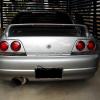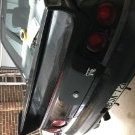Fuel Consumption Tips
Announcements
-
Similar Content
-
Latest Posts
-
Why not just get a trickle charger?
-
Yup. When I bought my car initially, the battery was flat for a long time and took over a week of constantly driving to FINALLY get the light to go green on the battery. Then if I didn't drive for a few days it would go red (as in needs a recharge), it just got weak as it sat for too long. Ended up destroying part of my security system and would set off my alarm randomly lol. Now I just use a trickle charger, great stuff and repairs your battery to.
-
Yes, letting batteries go flat, and then recharging them is not kind on them at all. My above was more around as the batteries age on. Going flat and recharging them very quickly shortens their life span.
-
I guess it depends how much you use a car, but my #1 reason for killing lead acid batteries is not driving the car (charging the battery) often enough,. I've got sick enough of dying batteries that I've switched to AGM; they are much more expensive but deal better with cold weather and almost always recover from being dead flat, unlike lead acid ones
-
If you get 12v at one of the relay pins with IGN on, and 12v at another for about 3 sec when you turn the key from ACC to start, then yes you can just earth the relay trigger pin. Just have a look at the top of the relay, it should tell you which pin needs earth when the 12v signal is sent (or if it's not clear, just post the pic and we can work it out). If you always have 12v at 2 pins with IGN on, they it is earth triggered by the ECU which makes it harder to fix (you really need to check the ECU pin is earthing when it should, and if so it is a wiring issue from there to the relay.
-








Recommended Posts
Create an account or sign in to comment
You need to be a member in order to leave a comment
Create an account
Sign up for a new account in our community. It's easy!
Register a new accountSign in
Already have an account? Sign in here.
Sign In Now